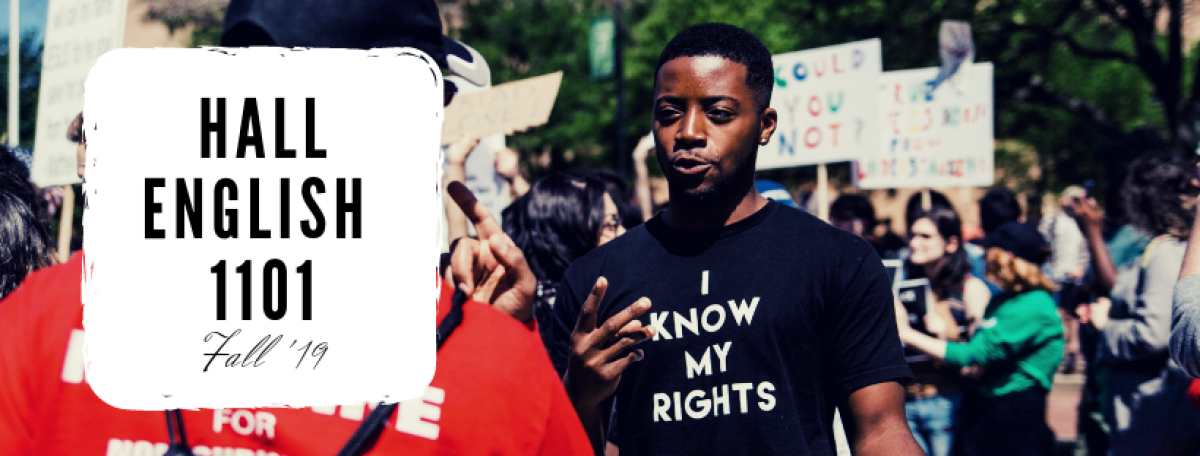Aisse Tounkara`
TED TALK Speech
Unit 3
Implicit Bias towards African Americans in our Police What is It, What can we do to change it ?
Your maybe wondering why your sitting here today when you could be somewhere else but I’m here to tell you why. Hello Everyone. My Name is Aisse Tounkara, and I am here today to talk to you about something very important as well as teaching you something. Hopefully by the end of today your mindset will change, and you will learn a few things that you never knew about yourself. Todays TED TALK will be on implicit bias in the police. So let’s do a quick exercise here before I go deep into my speech. I’m going to say a few words and you guys will have to reflect on the association you make with those words and what you believe the broader society like police makes with those words. Criminals, Low Income Neighborhoods, Jail
Now let me tell you what implicit bias is. Implicit bias is the conscious attribution of particular qualities to a member of a certain social group, or a group of people. We all have an implicit bias in our own ways. Implicit biases are triggered through rapid and automatic mental associations that we as humans make between people, ideas, objects, and the attitudes and stereotypes that we hold about those people, ideas, and objects.
Implicit bias in police is something that is a major problem in today’s society. Over the years Policing has evolved but the same ideas remain. Police officers have a very strong implicit bias towards African Americans. They make judgements based on preconceived notions of African Americans and then the worst happens. I concluded a research and became an expert on implicit bias. In my research I found that Police officers are often told to police differently in these low income neighborhoods compared to the other neighborhoods. This is because the norm that has been created is that African Americans are criminals and are dangerous. It’s crazy how the police mantra is “protect and serve” but when implicit bias is put into place it contradicts the whole idea. Studies have shown that “the tendency for police to shoot an unarmed African American suspects more than white ones is at 85%. It’s not just shootings it also stop and frisks, and consistent arrests that are made. Would you just take a look at that number. 85% That’s a very large number especially when African Americans only make up 13% of the population. Now look here, let’s take a look at Eric Garner an African American male who was a victim of Police officers implicit bias. On July 14th, 2014 Eric Garner died in an apparent chokehold after Police officer Daniel Pantaleo slammed him on the ground in an attempt to arrest him. At that time they thought he was selling loose cigarettes at the time when he wasn’t. It raised concerns after his death leading to the citizens saying that his death was a form of an officers implicit bias towards him. Had that been someone else the approach would have been done very differently but since he was African American this ended the way that it did. Another example is when Ferguson Missouri, grand jury declined to indict a police officer who shot and killed Michael Brown despite evidence proving that he was innocent and that the police officers implicit bias led to his death. The officer led his implicit bias to cloud his judgement and get in the way of proper conduct. This event meant so much to people because it struck a nerve throughout the country. This is a continuing cycle. Almost every African American that has been a victim of police violence is because of implicit bias. You get the big picture here.
Now let’s get into the bigger picture here. We talked about implicit bias, and how we all have an implicit bias of some kind. Police officers are now taking implicit bias training. Implicit bias training is when training programs are designed to expose people to their unconscious biases, provide the tools to get them to adjust patterns of thinking, and is aimed forward to eliminate discriminating behavior. This is what we call confronting implicit bias. In my research I found out that the New Jersey attorney general issued a directive requiring mandatory classes in racial bias for police officers in the state. The mayor is requiring that mandatory implicit bias training classes be taken. This implicit bias training is going to teach officers not to associate stereotypes and characteristics with racial groups, more directed towards Americans. Implicit bias trainings are very beneficial nowadays because we have seen a significant decrease in police approach, police violence when it comes to African Americans, and how every encounter turns out.



